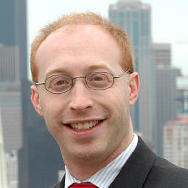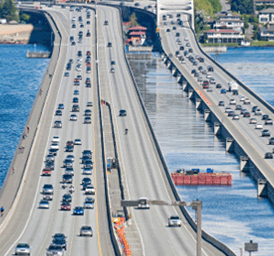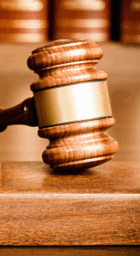Oct 13

Reexamining Seattle Prehearing Conferences For Traffic Tickets: Waste of Time Or A Welcome Party?
In 2007 I wrote a post about traffic tickets and prehearing conferences and what happens at a prehearing conference in Seattle. Recently this post has come under criticism for two particular statements I made in the post:
1. The magistrate will attempt to get the driver to essentially mitigate the infraction, thereby saving court resources and obtaining revenue for the city, county, and/or state and
2. Prehearing conferences are mostly a scam.
As to the first point, one criticism here is that at most magistrate hearings in Seattle Municipal Court, driver-defendants want to mitigate (e.g., admit and pay a reduced penalty) their infraction. Apparently, even drivers who check the contested hearing box often don't understand the difference between mitigation and contesting the infraction, and many driver-defendants who check the contested hearing box just want to explain what they did wrong or justify wrong action. So, the criticism to my 2007 point goes, the magistrate has no desire, strategy, or inkling to lean in any direction with the driver-defendant before the commencement of the prehearing, and that the magistrate doesn't care whether a driver wishes to have a contested hearing or a mitigation hearing, magistrates are patient about explaining the options and will even allow someone who signs up for mitigation to go to a (future) contested hearing. I think this is as a whole a fair point and worth noting on this blog. I can see how magistrates collectively might feel that it is unfair to say that they themselves try to convince a driver to do anything, especially as magistrates each have individual viewpoints, make decisions separately from their colleagues, and help comprise the judicial branch (which I am reminded is a separate branch of government). In my experience, however, a number of magistrates will offer an amount of money that a defendant can pay to close a case, and this becomes the take it or leave it offer, and the defendant who leaves it is forced to return to court.
The second point above receives criticism because it is viewed by some that I am impugning the magistrates and that prehearing conferences are not a scam because defendants are put on notice of the prehearing conference, that defendants can waive the prehearing conference, and because magistrates are not involved in setting a fixed amount of what one pays and that these amounts vary on a case by case basis and by individual magistrate. Also, as a separate branch of government, the judiciary does not have to answer to the other branches for the fine amounts the judiciary imposes.
I want to note that I think most Seattle magistrates are good, decent, and hard-working people and I do not believe that any type of fraud is going on involving the magistrates. I know of no fraudulent scheme by the magistrates and I do not wish to imply that any has gone on.
I do, however, think that the system of prehearing conferences is designed in such a way as to hurt a lot of defendants and while I don't blame the magistrates for that, they are part of a system that could use great improvement. For most defendants in Seattle Municipal Court, a visit to a magistrate is what court in Washington means to them--magistrate as both negotiator and neutral, and no prosecutor with whom to negotiate.
There are a few benefits of prehearing conferences for some people but there are more things I dislike about them, and I think for many people prehearing conferences are a bad idea, especially for those who get moving violations and have a lot of collateral consequences at stake (employment, insurance, driving privilege, to name a few). Before I talk about some of the problems I have with prehearing conferences as presently conducted, let's examine a few of the good things about them in certain cases.
BENEFITS OF PREHEARING CONFERENCES
- Judicial economy. One benefit of a prehearing conference is judicial economy. It's simply quicker to get a case done in a magistrate's chambers than to have a contested hearing. Seattle Municipal Court has the largest traffic ticket caseload of any court in the State of Washington, and hence magistrates help facilitate the speedy, just, and inexpensive determination of every infraction case, and prehearing conferences allow magistrates and courts to get through a high volume of cases quickly.
- Parking and traffic camera violations. Many of these violations can be dealt with at a prehearing conference and it is much quicker for a magistrate to view someone's residential parking zone permit or disabled parking permit at a prehearing than at a full-blown hearing in a courtroom a floor above. Same with traffic camera violations.
- (Some) people like prehearing conferences. Some people like the privacy magistrates' chambers afford, the fact that magistrates are not in robes, and the somewhat less formal nature of a prehearing conference.
- Striking a balance. Some people believe that because traffic tickets are less formal than most civil and criminal cases, prehearing conferences to avoid a contested hearing or even a mitigation hearing in open court are a good idea. Certainly this viewpoint can be consistent with judicial economy.
But there are also problems.
PROBLEMS WITH PREHEARING CONFERENCES IN SEATTLE
- The magistrate is both third-party neutral decision-maker and lead negotiator. Many magistrates will tell you that even individuals who come to contest their tickets at prehearing conferences want to negotiate either a reduction of fine or request a dismissal. I don't have a problem with the request for a dismissal, and on occasion a request for a dismissal might even be granted. What I don't like about this as a whole though is that the magistrate as both negotiator and judge is a departure from how the American judicial system works in most civil cases (negotiations between the parties outside the presence of a judge) and criminal cases (negotiations between a prosecutor and a defendant or defense attorney). In fact, in most jurisdictions that hear traffic infraction cases, there is no negotiating with a judge, and for good reason--the judge is supposed to be the third-party neutral. I think the negotiation aspect at the prehearing in Seattle puts magistrates in a bad position because they are the ultimate negotiators and decision-makers at this stage of the proceedings, which is the only stage for most defendants. Magistrates get blamed by the media, the Legislative branch (City Council), the Defense Bar, and individual defendants because they are negotiating and deciding. In fact, if you don't like how the negotiation is going at the prehearing, a defendant can reschedule for a contested hearing, but now the magistrate-negotiator gets to sit as a pro-tem judge. It's not always the same magistrate sitting as a pro-tem judge at the second hearing, but it doesn't appear that fair or protective of a defendant's right to have a person who has the appearance of being completely neutral in the upstairs courtroom when that person or person's colleague was negotiating in the downstairs offices. Again, I want to reiterate that I think most Seattle magistrates try to be fair and are decent human beings, and often a magistrate in a prehearing will be different than the pro-tem judge, but I don't think it is completely natural to have a negotiator and judge be the same person or even colleagues. It merges the roles of the the responsible party for prosecuting civil infraction cases (the executive branch) with those responsible for adjudicating disputes (the judicial branch). I know in certain civil cases two judicial colleagues will be involved in a case--one as mediator, the other as a judge, but there is a wall if a mediated case goes to trial and the judges typically don't communicate. In an infraction case in Seattle, there is no prosecutor appearing at prehearing conferences and no other representative of the plaintiff. The magistrate negotiates.
- Seattle Municipal Court has called prehearing conferences "prehearing SETTLEMENT conferences." The word "settlement" for these conferences is not in state law. The conferences have the appearance of being designed to want something other than contesting the infraction. I should note that Seattle Municipal Court hosts mitigation hearings in the same location as prehearing conferences, however, the prehearing conferences are given to those who seek a contested hearing. A person wanting a contested hearing is told that he/she has to have a "settlement" conference first and tickets are rarely dismissed at this stage. Of note, however, is that people can waive these conferences, but most people don't read the forms they are sent. So a number of people have to return to court a second time. This still might be good for the judiciary in filtering people, but it's not great for the person who wants to challenge their ticket at the first instance and who does not understand what happens at this initiate stage of the proceedings.
- The prehearing conference takes place in a placed called a courtroom, but it does not look like a courtroom and the rules of evidence do not apply. In Washington, the rules of evidence apply in infraction cases, but at prehearing conferences, individuals can't really contest tickets, so the rules of evidence are on hold. The courtroom has a large waiting area with some clerks and several seats. "Courtroom" is posted within. There is no bench and no counsel table. Magistrates' offices are equipped with recording equipment, and people are recorded, but the recordings are not kept for contested or prehearing purposes. It is unclear whether the proceedings are open or closed to the public, but visitors are asked to fill out a form, to have a seat, and wait their turn until their name is called for today's case. The proceedings are not like normal court with a robed judge on a bench and the rules of evidence.
- Magistrates are not elected like the court's judges and this taints the public's perception of what goes on behind closed doors or doors that appear to be closed. The seven judges of the Seattle Municipal Court are elected; however, magistrates, who consider themselves part of the judicial branch of government, typically serve at the pleasure of the Presiding Judge rather than the voters, but, like municipal judges, magistrates get funding from the City Council. There is some argument that because of state law, which helped to create the Seattle Municipal Court, the City may not be able to get rid of the Municipal Court, but it is a lot easier for the Council to tinker with magistrates and other court employees than elected judges, perhaps with the exception that in recent years, the City Council did get rid of one elected position but increased the number of magistrates by at least one part-time magistrate. There is some question about how much judicial independence magistrates have. Clearly, magistrates have complete independence from the voters, but less independence from the City Council. So while even though magistrates are technically in the judicial branch (as I was reminded), and while they make their own decisions on how much of a fine to assess, there has historically been a lot of pressure on magistrates who cut parking and traffic fines more than the Legislative Branch desires. Because the majority of fines appear to be assessed at the prehearing stage, the public rarely if ever gets to see these proceedings until the media come out with a report after a public records act request. Magistrates do not feel comfortable commenting because of judicial rules, and the public doesn't really get to hear anything at election time because magistrates don't stand for election, even though many work in the judicial branch full-time mostly doing mitigation hearings and prehearing conferences. So even though magistrates are technically free to impose any penalty or no penalty, they have come under a lot of fire for going too low and not collecting enough, and then some magistrates can't talk about it both for judicial rules and I suspect out of some fear that the Council could easily cut their positions in a new budget. Many prehearing conferences contribute to the appearance of a lack of transparency in the proceedings (one can't walk in on a prehearing like going into any other courtroom in the Seattle Municipal Court). Are magistrates collecting enough? Too much? Are they ruling fairly? How does anyone know?
The system for disposing of traffic infractions could be better. I am not a fan of prehearing conferences in cases involving moving violations and I am not thrilled with some of the procedures with regards to the disposition of these cases. While I do not blame individual magistrates for procedural problems that have gone on for a long time, there is vast room for improvement in the process. To that end, the Seattle Municipal Court is working on changing forms to make them more clear and there will be a Bench-Bar meeting in Seattle this month. These are steps in the right direction.











